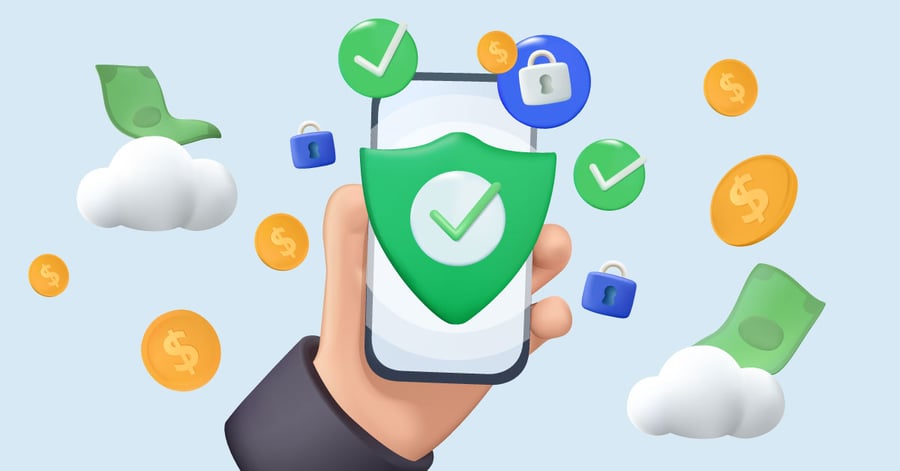
- Home
- Global Payroll
- Data Safety with Payroll outsourcing
Data Safety with Payroll outsourcing
Published :

What can be more important for an organization than to maintain employee information and process payroll accurately, timely and legally?
Payroll is data sensitive. Payroll data is not all about compensation and rewards but also involves employee’s personal and identification information. The context and usage of the personal information varies from one country to another.
Multinationals may tend to often overlook or misunderstand the global context risks and regulations around data collection and processing. An easier workaround for them is to outsource their payroll operations.
Payroll data security is an employee's fundamental right. It serves to protect their identity from identity theft or potential fraud. With data privacy becoming an issue and risk, it has become challenging for global companies to identify and protect data from payroll outsourcing activities that are at security risks.
The events of a data breach are constantly increasing even after implementing various safeguards to reduce the risk and put good data security in place. Payroll data security is breached when there is unauthorized, accidental, or illegal access to your data.
A personal information data breach is expensive and affects the organizational reputation badly. It poses immediate risks and long-term consequences, putting your organization at multiple risks, such as:
Small businesses often believe they are not at the risk of any breach of payroll data security because of their size and do not prepare for such a situation. However, they do not realize that criminals can exploit susceptibilities.
It is important for us to understand the data flow to uphold a data privacy policy. Our responsibility is to maintain up-to-date records of all processing activities and identify and document the method. We must also keep track of how often the data is accumulated, kept, utilized, and shared.
Record-keeping activities become more daunting while translating data into different currencies and languages. In such cases, a centralized payroll solutions system with standardized data verification and reporting can help uphold data privacy.
Global payroll data security is only adequate when those managing and safeguarding the information are aware of regional laws and compliances. Thus, we must train, test, and retrain employees looking after our sensitive data as it will help create a more efficient and sustainable data protection control framework.
Lastly, every organization should assess privacy regularly and review annual policy to maintain company-wide accountability. We should run test breaches to check how secure our data is and where we need to work. We can also hire or nominate a Data Protection Officer to conduct an annual internal audit of payroll solutions, review current privacy procedures and policies, and introduce necessary changes.
With Changing technologies, a payroll data security breach is unavoidable, even for small business owners, because criminals do not care about the business size. Hence, It should be a top priority. We may lose years of hard work, hard-earned money, and our customers' trust in one data breach. Besides, it becomes difficult for everyone associated with us to move past this.
If you are processing payroll in house, ensure you are constantly review your data protection policy, train key stakeholders who are looking after sensitive data and conduct periodical audits. If you have or planning to outsource your payroll operations due to the complexity involved in compliances and regional regulations, carefully review the processes and policies in place enforced by your payroll vendor in managing customer data. A good procedure in place and a constant review will give you the much-desired peace of mind to all.
Are you planning payroll outsourcing? Visit Ramco for managed payroll services and data security.
Enterprise asset management (EAM) involves the management of mission critical assets of an organization throughout each asset's lifecycle. EAM is used to plan, optimize, execute, and track the needed maintenance activities with the associated priorities, skills, materials, tools, and information. The aim is to optimize the quality and utilization of assets throughout their lifecycle, increase productive uptime and reduce operational costs.
Enterprise asset management (EAM) involves the management of the maintenance of physical assets of an organization throughout each asset's lifecycle. EAM is used to plan, optimize, execute, and track the needed maintenance activities with the associated priorities, skills, materials, tools, and information.
The software helps in effective maintenance of assets through preventive, predictive, shutdown and breakdown maintenance strategies. The system also helps enterprises mitigate equipment risks by enhanced safety standards. The streamlined operations and improved asset performance helps organizations increase their investment effectiveness.
EAM is important because it helps organizations track, assess, manage and optimize asset quality and reliability. Asset intensive Organizations have hundreds, thousands, even millions of assets which needs to be maintained to maximize / optimize life of these assets to increase the return on investment.
The key features of effective EAM are:
Asset Intensive companies under the following Industries :
Contact us for a meeting and schedule a demo
This differs on case to case basis, based on the type of installation and unique industry specific requirements. Contact us for a meeting and schedule a demo.
This differs on case to case basis, based on the type of installation and unique industry specific requirements. Contact us for a meeting and schedule a demo.
Stay Connected, follow us on LinkedIn / Twitter to know more about EAM Software latest trends.

All Rights Reserved. © Copyright 2024. Ramco Systems.